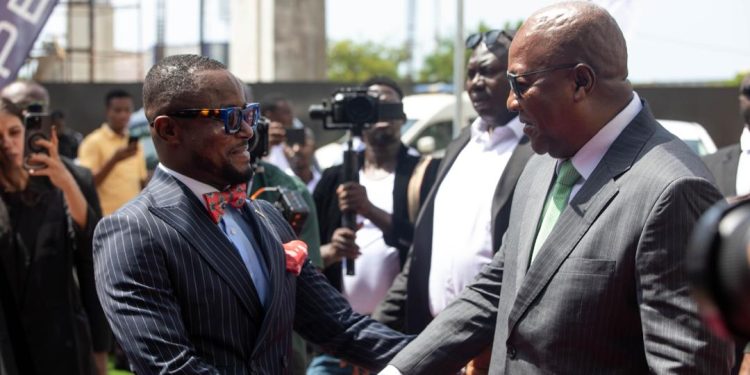Ghana’s DStv Standoff: A Warning Signal for Investors
What Happened?
In August 2025, Ghana’s Minister of Communications, Digital Technology and Innovations, Samuel Nartey George, threatened to suspend the licence of MultiChoice Ghana—the operator of DStv—unless it reduced subscription prices by 30%.
The minister argued that Ghanaians pay nearly $83 for DStv Premium—almost three times what Nigerians pay. MultiChoice rejected the directive, describing it as unsustainable given high content rights, foreign exchange costs, and operational expenses.
Why It Matters for Investors?
This clash is far more than a pricing dispute. It is a signal of regulatory unpredictability in one of West Africa’s most promising economies.
• Policy by Ultimatum: Businesses fear that commercial decisions can be overturned at the discretion of political authorities.
• Chilling Effect on Capital: Arbitrary interventions increase risk perception and weaken Ghana’s competitiveness against regional peers like Nigeria and Côte d’Ivoire.
• Unresolved Structural Issues: The absence of a competition law allows monopolistic practices to persist, while overreach discourages innovation and private sector investment.
The Bigger Picture.
MultiChoice dominates Ghana’s pay-TV market because of exclusive rights—particularly English Premier League football—that lock out competitors. Instead of addressing these structural issues through comprehensive reform, government has opted for political confrontation.
For investors, this creates three red flags:
1. Uncertain rules of the game – no independent or reliable framework for dispute resolution.
2. Weak consumer protection systems – leaving space for arbitrary intervention.
3. Reliance on populism – which makes long-term forecasting difficult.
The Path Forward.
If Ghana intends to build a business environment that attracts investment and protects consumers sustainably, government must:
• Pass a competition and fair trade law to curb monopolistic behavior.
• Strengthen independent consumer protection and dispute-resolution bodies.
• Encourage market liberalization, enabling both local and international entrants to compete in pay-TV and streaming.
• Commit to policy consistency, ensuring disputes are handled transparently within legal frameworks—not through ultimatums.
Final Word.
Minister George’s directive may resonate with consumers in the short term, but it risks damaging Ghana’s reputation as a predictable and investor-friendly market. CEOs and policymakers alike should recognize that investor confidence is built on institutions, not impulses.
Ghana has the opportunity to position itself as a regional leader in digital media and innovation—but this requires strengthening laws, empowering regulators, and fostering fair competition. Otherwise, political brinkmanship will continue to overshadow the country’s true potential.
About the Author.
Ernest De-Graft Egyir is a CEO Advisor, the Founder of the Chief Executives (CEO) Network Ghana and the Ghana CEO Summit, and a Member of the National Economic Dialogue Planning Committee. ⚓️









I completely disagree with your heading and most of your content.
You focused more on theoretical issues than conducting a thorough research to understand the issue especially from the public opinion perspective.
You ignored the fact that MultiChoice Ghana is treating its customers in Ghana unfairly.
You are for business Independence and freedom but ignored that fact that such and independence and freedom should be fairly applied.
One cannot argue that because independence and freedom exist, you will over price and still expect to be treated right.
You should have made it clear that the moment you failed to treat the public right, you forfeit your independence because the government exist to protect its citizens ultimately.
This is a good sign to investors that should you fail to treat the public fairly, the government shall step in.
In fact I conclude that your write up appears to be an attempt to favour MultiChoice Ghana and to create unnecessary fear among investors.
Please be fair a explain the arguments made by MultiChoice and analyze it to see if it is actually acting in good faith.
Why should anyone defend an enterprise that is acting in bad faith?
All the markets MultiChoice operates in are known and we can access and assess it’s pricing and the economic conditions in those markets.
Will you say that MultiChoice is acting in good faith in Ghana after doing a thorough Analysis of it’s markets.
Should you not have sounded warning to investors that same shall be their fate should they act in bad faith??
I simply do not agree with your content and heading.
Thank you